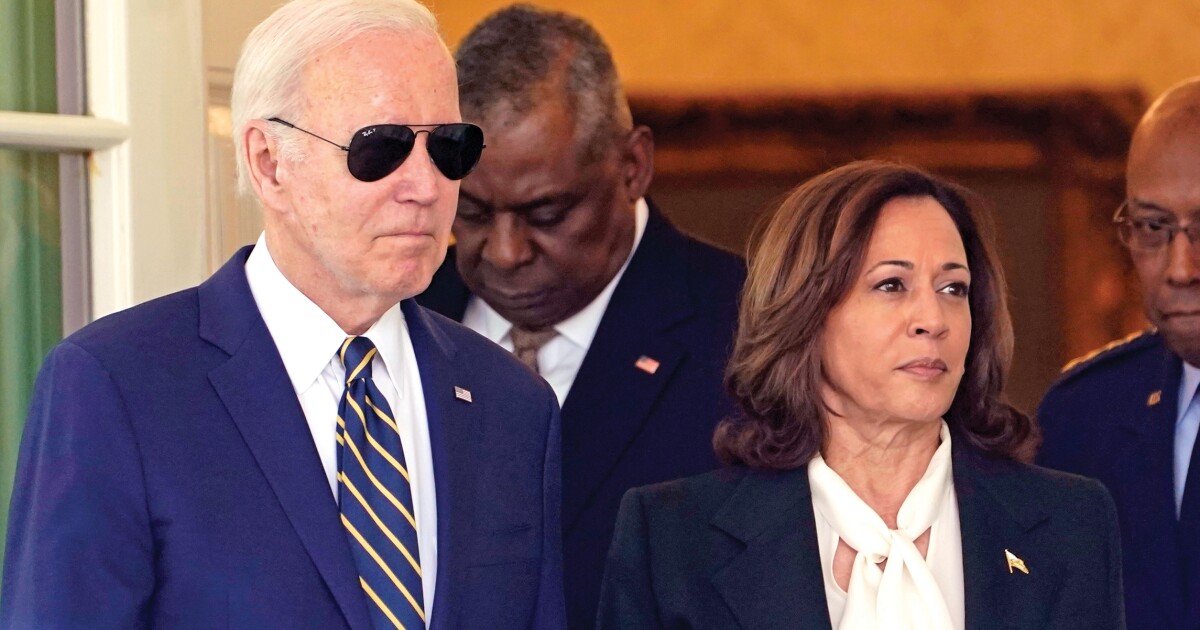

President Joe Biden is going to return to what worked for him both in 2020 and the midterm elections as he seeks reelection next year.
Biden is going to have a relatively light schedule, with appearances at Democratic fundraisers or heavily coordinated events during which he promotes his agenda.
STUDENTS FOR DESANTIS REACHES 100 CAMPUSES NATIONWIDE
This will get Biden the media coverage he needs to stay in the public eye and compete with the likes of former President Donald Trump, the 2024 Republican front-runner who subscribes to the adage that there’s no such thing as bad publicity.
But it will limit Biden’s exposure, minimizing age-related gaffes and the kinds of testy exchanges with voters that plagued him even as a younger man, helping to end his first run for president in 1987. More recently, there have been reports about him lashing out behind closed doors with his aides instead.
It won’t eliminate the possibility of a Biden mishap — he has had a number of trips and falls that rival Gerald Ford’s — but it can reduce them while his potential Republican challengers flood the zone.
When Biden did this in 2020, he was derided by Republicans as “basement Biden” and “hidin’ Biden,” with the implication Democrats were trying to conceal their nominee from the voting public. Nevertheless, he was elected president.
Biden’s low profile in the midterm elections, at least in comparison to his recent predecessors, was also the target of criticism. But in the end, Democrats held the Senate and overall did better than expected in a race that had the makings of a “red wave.”
“I don’t think rallies have proved effective for candidates in the midterms,” then-White House chief of staff Ron Klain explained to CNN. “I don’t think it should surprise anyone that we’re not using the strategy that failed in 2010, and the strategy that failed in 2018.”
“When the president speaks, he has a large bully pulpit,” White House press secretary Karine Jean-Pierre told reporters at the time. “And he has been able, in the past several weeks, to set that national conversation.”
This history convinces many Democrats and Biden allies that a Rose Garden reelection strategy can work in the 24-7 news cycle age. They may be right.
There are, however, three differences that could potentially make 2024 different. In 2020, COVID-19 was raging. Many in-person events were canceled. Biden’s voters were particularly concerned about the pandemic and cautious about spreading or contracting the virus. None of that remains as true today.
In the midterm elections, Biden wasn’t on the ballot himself. In fact, his job approval ratings were a drag on Democrats. So low-key public events touting infrastructure projects or new manufacturing plants followed by fundraiser speeches to partisan audiences might have been sufficient. More overt public campaigning for at-risk Democrats might have increased their vulnerability. But this time, Biden will be the candidate.
The third key difference is the role Biden’s age will possibly play in this election. Republicans made limited headway with the age issue in 2020. But it is clearly a major factor in why some Democrats, including many young progressives, wish Biden wouldn’t run again.
Biden is now 80. He will turn 82 shortly after the election and would be 86 by the conclusion of a second term. Republicans have already openly speculated that he might not live through the next four years, opening the door to an unpopular vice president, Kamala Harris, to succeed him.
An ABC News/Washington Post poll earlier this year found 68% thought he was too old to serve another term as president. That was consistent with the two-thirds who told exit pollsters in the midterm elections they did not want Biden to run again.
Just 32% in the first poll believed Biden was mentally fit to serve. Trump, who is 77, scored better on both age and mental acuity. The runner-up for the GOP nomination, Gov. Ron DeSantis (R-FL), is 44.
The question is whether Biden can allay those concerns without being out in front of the electorate on a regular basis. There have been numerous reports that he avoids early morning, late evening, and weekend events. Most of his public schedule takes place between 10 a.m. and 4 p.m. on weekdays.
CLICK HERE TO READ MORE FROM THE WASHINGTON EXAMINER
Biden skipped a dinner during the recent NATO summit, though he did have a vigorous work and travel schedule throughout the meetings with international leaders.
When asked directly about age concerns, Biden usually provides a two-word answer: “Watch me.” That implies he can be easily seen.





